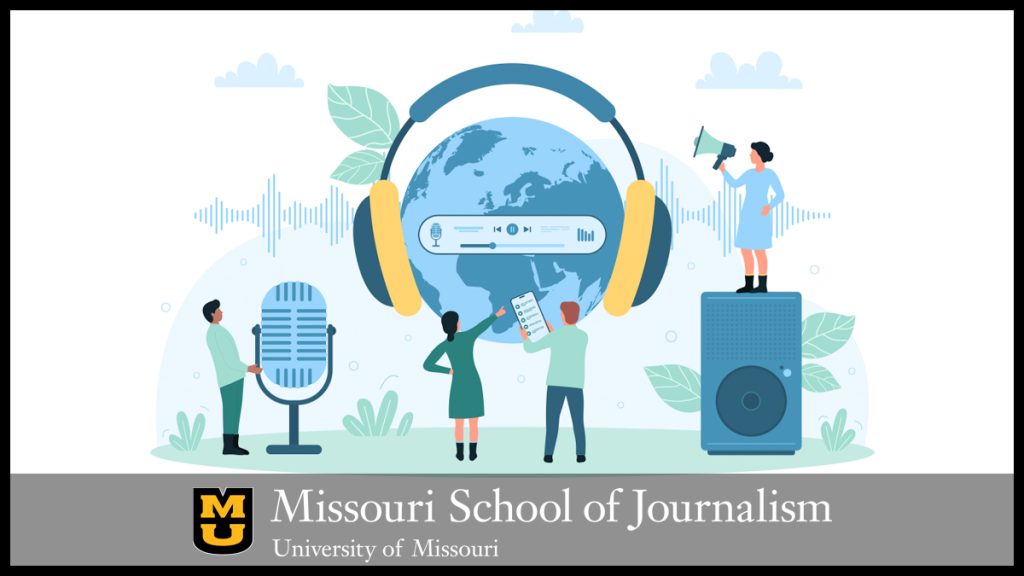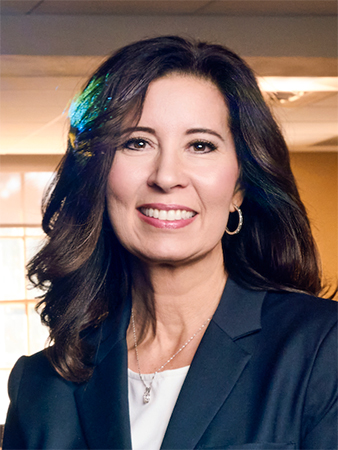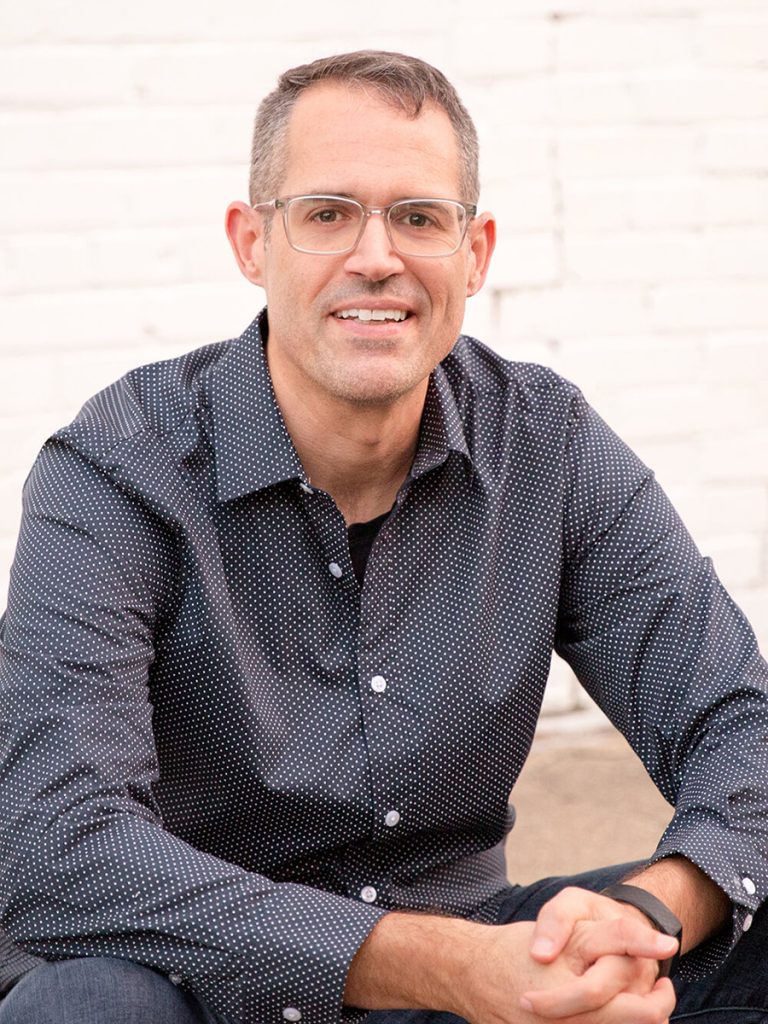Beyond the hype: Jared Schroeder hosts podcast equipping Mizzou educators with AI literacy

Generative AI has revolutionized how journalists and strategic communicators approach everything from writing headlines to transcribing and summarizing interviews. But with the technology now as ubiquitous as smartphones, educators are also evolving college classrooms to incorporate AI tools responsibly and ethically as part of Mizzou’s mission as an AI-forward institution.
As host of a podcast for Mizzou’s Teaching for Learning Center (T4LC) that presents a series of one-on-one conversations with educators and academic leaders at the university, Missouri School of Journalism Associate Professor Jared Schroeder is helping teachers and the campus community as a whole develop AI critical literacy by exploring challenges, opportunities and philosophical questions posed by AI. “AI Critical Literacy for Educators and Students” is now in production on its second season.
“Podcasts are great for taking something that is complicated and putting it in a digestible form,” said Schroeder, who teaches communication law and served on Mizzou’s AI learning environment task force in the first half of 2024. He is also an AI teaching fellow at the T4LC. “Anybody can listen at any time. Someone could decide in December that they care about this and catch up. I love that it’s permanent and accessible.”
Each season focuses on themes from recent books delving into different nuances of the technology. In the first season released this past spring, the conversations revolved around Ethan Mollick’s “Co-Intelligence: Living and Working with AI,” which explores how people can harness and collaborate with AI in productive ways. It was a natural fit for Schroeder, given he had already written his own book on the subject of AI and free expression.
One episode centered around the “Jurassic Park problem,” or the risk of technological innovators skipping over the “why” in pursuit of the “how.” Another examined the tendency for some to use AI tools in one way without considering alternative uses. In the season’s final episode, Schroeder spoke with Noah Grimsley and Lorraina Scolaro, two undergraduates at the School of Journalism who surveyed and interviewed 18-24 year-olds about their use of AI for the School’s annual State of the YAYA report on the youth and young adult advertising market.
The upcoming season will transition to discussing “The Opposite of Cheating: Teaching for Integrity in the Age of AI” by Tricia Bertram Gallant and David A. Rettinger. Given the book’s emphasis on academic integrity, a key focus of the season will be about making sure students use AI tools to learn — rather than to cheat or “skip” the learning — by creating courses that help students understand both the abilities and limitations of AI.

For Tori Mondelli, director of the T4LC, the podcast is an ideal platform to reach busy educators.
“You don’t have to take an hour out of your day to come to a workshop,” Mondelli said. “Maybe you’re listening for 15 minutes on the way to work and back. Most people can fit it into the day or the work week.”
In addition, the podcast could serve as an entry point for those who aren’t sure where to start when it comes to thinking about AI in the classroom.
“Sometimes, before people can engage in professional development, they have to warm up to the idea,” she added. “The podcast is a potential first engagement or gateway, because faculty can dip a toe in and see that their professional development partners are very thoughtful, cautious and circumspect. The podcast is a great way to kickstart the cross-campus dialogue and collaboration that we need.”
That approach is aided by Schroeder’s unpretentious, self-reflective style, with episodes often opening with a personal anecdote or lighthearted introduction to a complex topic before segueing into an interview. Schroeder comes across not as a pedant but as a navigator taking his audience on an interdisciplinary voyage through AI’s impacts on education, reflecting Schroeder’s and Mondelli’s shared view that at this still-early stage, there are emerging practices — not best practices — for AI in education.
“As a teacher, I know I need help — I’m on my own journey,” Schroeder said. “It’s been wonderful because I’m meeting people from all over campus and building a network of people around campus who are thinking about AI. That’s how it’s supposed to work.”
About the Teaching for Learning Center
Established in 2017, the T4LC develops and provides educational programs and services that are freely available to the university teaching community, including full-time and part-time faculty, teaching assistants, post-doctoral scholars and anyone else involved in the instructional process at MU.
The center will hold its Fall Forum on Teaching, Learning and Assessment on Friday, October 3. Keynote speaker Sam von Gillern — the guest on episode 4 of the podcast’s first season — will discuss his AI literacy research.
Updated: July 29, 2025
